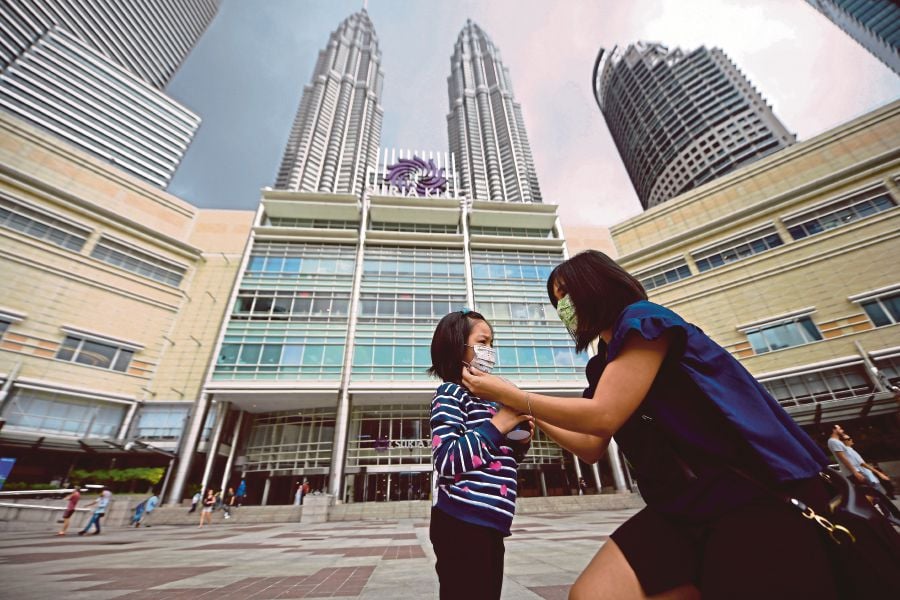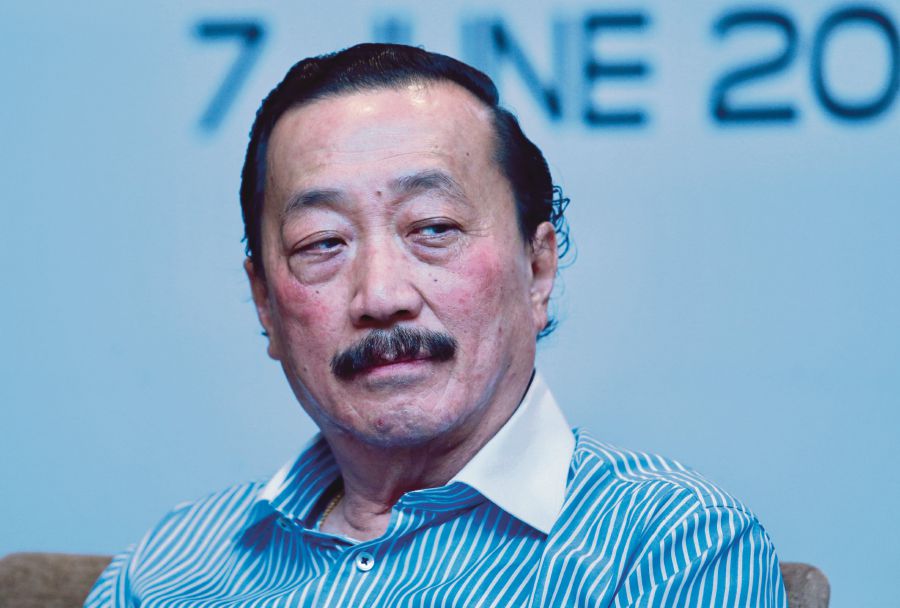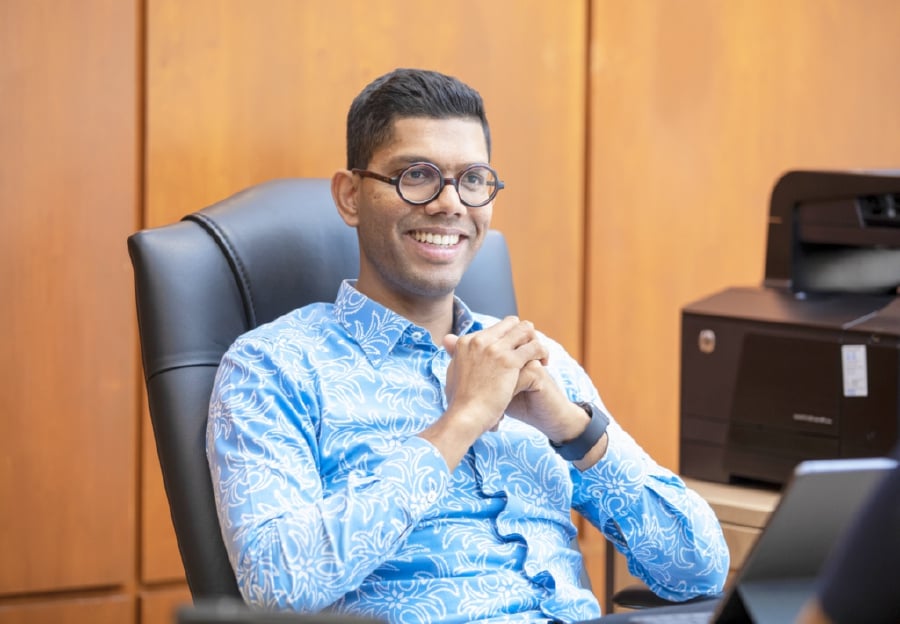By Sharen Kaur - Published in NST Property, April 30, 2021
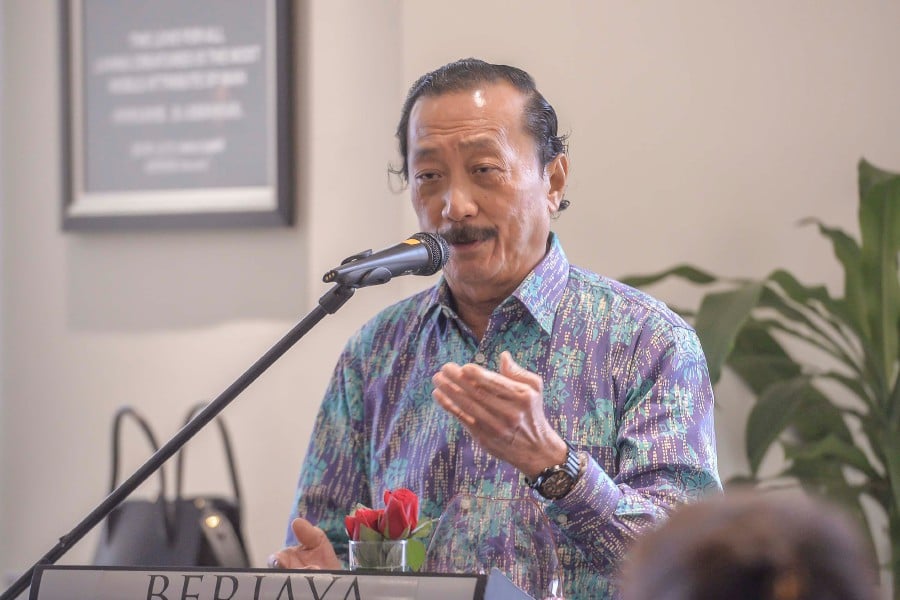
Berjaya Group founder Tan Sri Vincent Tan Chee Yioun urge the government and banking sector to strengthen the financials of low-income Malaysians and lift them out of poverty.
Tan said one issue in the current banking system is that it is not designed with low and middle-low class households in mind.
"Banks currently offer many services and if they can serve the poor, they could help low-income individuals plan for the future and build financial stability. It is important to offer low-income individuals access to financing, especially to buy their first home," Tan told NST Property in an interview.
Tan said the majority of low-income earners or the B40 (bottom 40 per cent or poor) households do not own a home because they cannot get a loan.
"Their loans are rejected and among the reasons is their household income is low. Instead, they can only rent. What happens if they become jobless and they cannot pay their rent? We will have more homeless people in Malaysia.
"We want Malaysia to be a good country. We don't want too many homeless people. We want people to have a better understanding of living. There are so many poor people around and with the current state of the economy, more people will be jobless...more people will get poorer.
"We want security. You don't want barbed wires or arm guards. You look at Johannesburg, every house is equipped with barbed wires. If you want Malaysia to be like Japan, Korea, Taiwan, Singapore, and European countries, we have to start by uplifting the living standards of the B40 group so more people here will be employed and have good jobs," he said.
"That is why I set up Better Malaysia Foundation (BMF) with a solution to help the urban poor or B40s out of poverty but we need government assistance to do this," he said.
BFM has launched a new social enterprise programme to assist the government in addressing homeownership aspirations of low-income Malaysians, namely for B40 households.
Tan, who is chairman and founder of BFM said the social enterprise would facilitate the construction of properties with a low monthly cost of ownership.
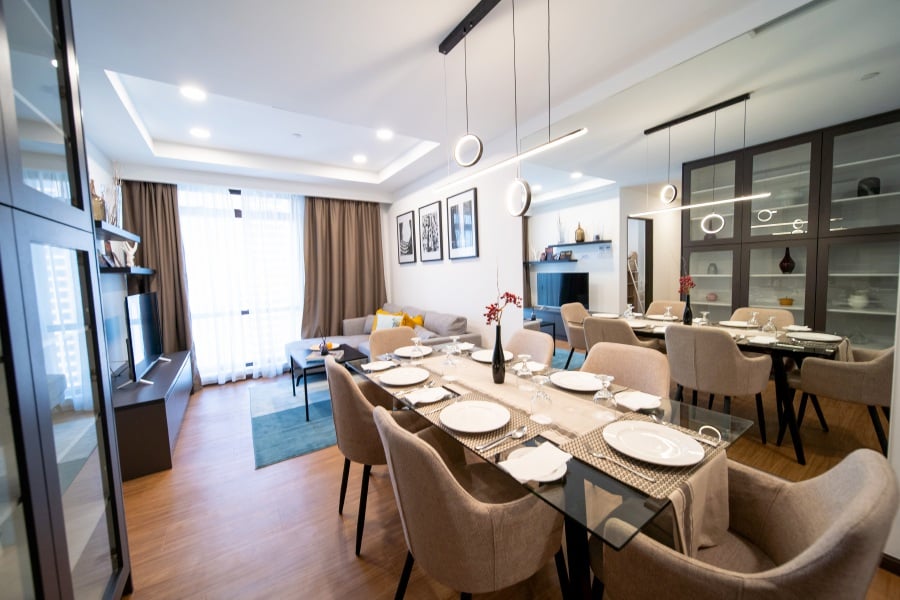
BFM in collaboration with Berjaya Land Bhd, has designed a 900 sq ft five-bedroom, four-bathroom show apartment specifically for this initiative.
Early this month BMF submitted its proposal to the government. The proposal includes recommendations to the government to guarantee loans for the B40 group to own a home, 100 per cent financing, and longer tenure of up to 60 years for the housing loans.
Tan is basically calling on banks to lend to the B40 group and for the government to be a guarantor for these home loans.
He said if the government can guarantee the loans then the banks would have no issues with credit risks.
"If there is a government guarantee, I am sure the banks will lend. The banks would have no fear that they would not be able to get their money back if they have to foreclose. If there should be a foreclosure, the house would be sold back to the government, which is the guarantor," he said.
Buy a home instead of renting, Tan says
Tan said the B40 group should consider buying a house instead of renting but banks must assist them in terms of giving out the loans so they finally get their dream home.
"If banks give them 100 per cent financing with 40 to 60 years payback period, I am sure the B40 group will be able to pay the monthly installment. If they are renting a house for RM900 a month, they can convert the rental into a housing loan that pays for their own house and build up equity. So instead of paying rent, they can use that same amount to pay for the loan and at the end of the day, they will own a home," Tan said.
Tan said the B40 group should look at buying a property as a retirement fund.
"If banks give them 100 per cent financing over 60 years for a property that cost RM300,000, in 20 years they would have paid at least one-third of the loan amount, or around RM100,000. On top of that over the 20 years, there will be price appreciation. If the property doubles in value after 20 years, they would make a lot.
"Let's say 20 years later the property is worth RM600,000 and they want to sell it, they just have to pay off the balance loan amount of RM200,000 and take home about RM400,000. They will have an RM400,000 retirement fund and they can reinvest some of the money and buy a bigger property to upgrade their livelihood.
"Currently, our low-income earners don't have this opportunity. If they have been renting for 20 years from the landlord, they will have zero value, zero equity. Malaysia today would have been a much better country if this was thought of years ago. We don't want to be like some countries where the poor are getting poorer," Tan said.
Build more affordable housing
Tan said there is an urgent need to build affordable housing and he hopes more developers will focus on building this type of property for the B40 group, especially with the ongoing Covid-19 pandemic.
"Developers don't want to build affordable homes in their housing project so their land can be more valuable. They want to build more expensive homes and can get away with it," Tan said.
Tan said the other reason is because of the high loan rejection rate for the B40 group, and low margins.
"Developers can still make money from affordable housing but the margins are lower. Normally, some lucky developers can make about 15 per cent, 30 per cent, or around 40 per cent margin from non-affordable housing projects. For affordable housing, developers can only make 10 per cent to 15 per cent profit.
"The problem is the developers. They are worried that if they build too many units they cannot sell. If they build 1,000 affordable homes and there are 10,000 buyers, the ministry will choose the people who are eligible to buy the 1,000 units. The 1,000 potential buyers will pay a small deposit and then they will apply for a loan but 60 per cent of the loan applications are rejected and the developer is stuck with the unsold units.
"Developers want to sell all 1,000 units but only 400 buyers can pay for it, and the other 60 per cent is still dangling there. So what does the developer do? If the developer is making only a 15 per cent margin he needs to raise 85 per cent of the cost to build 1,000 homes. However, in this case, the developer can only raise 40 per cent and he is short of 45 per cent as he is waiting for the remaining 60 per cent of buyers. After one experience like that, do you think developers will want to build affordable homes?"
